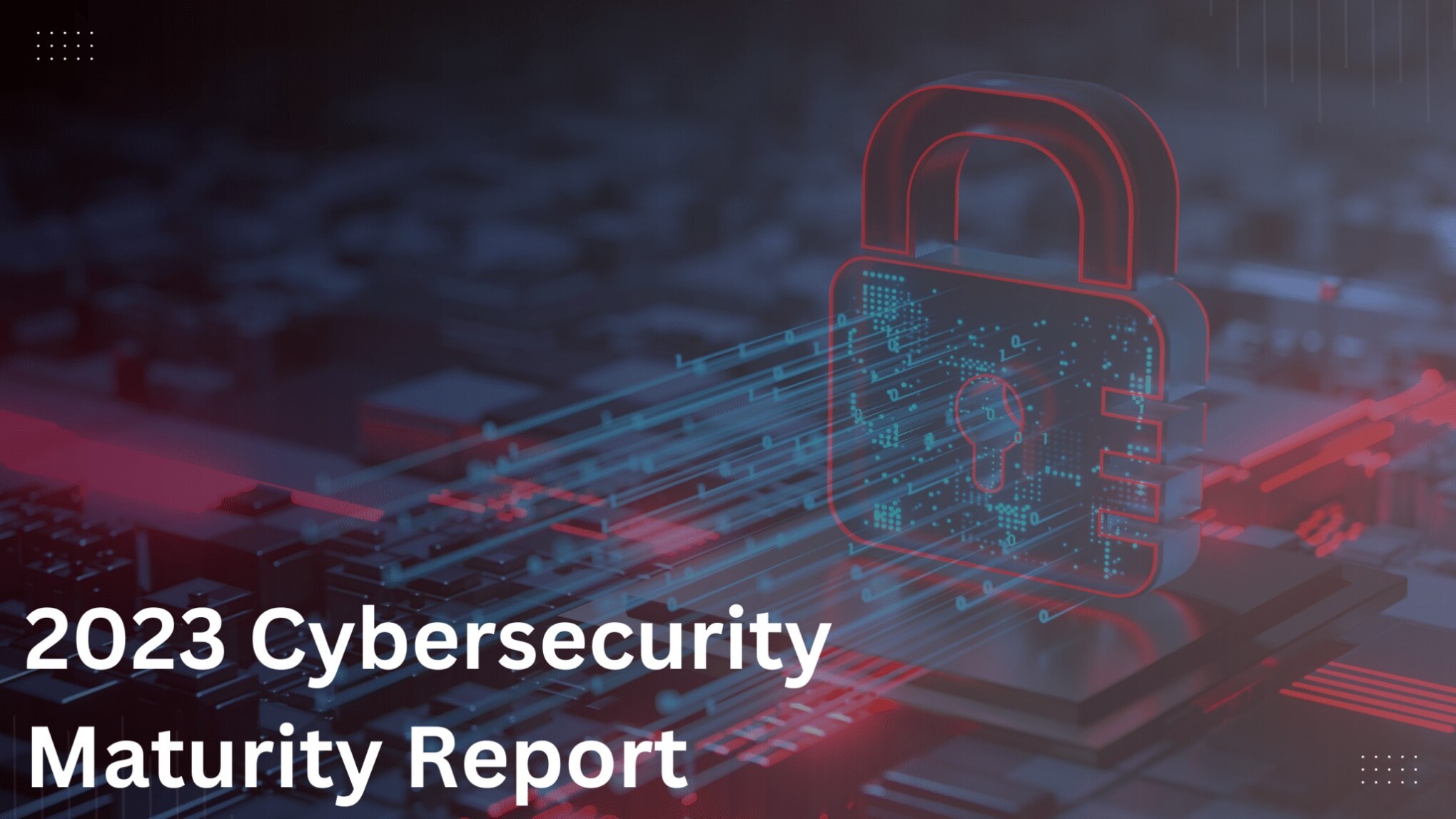-
Connect With Your Ottawa IT Service Company at (613) 828-1384
Connect With Your Ottawa IT Service Company at (613) 828-1384
In today’s digital age, cybersecurity is a crucial aspect that businesses and organizations cannot ignore. Cyber attacks have become more sophisticated and frequent, posing a significant threat to the integrity and confidentiality of sensitive information. As a result, businesses and organizations need to develop and implement robust cybersecurity measures to mitigate the risks associated with cyber threats.
Recently, the 2023 Cybersecurity Maturity Report was published, providing a comprehensive analysis of the current state of cybersecurity maturity across various industries. The report analyzed data from over 1000 organizations across different sectors, providing insights into cybersecurity and identifying areas for improvement.

The 2023 Cybersecurity Maturity Report revealed some critical findings that businesses and organizations must be aware of.
Here are some of the key takeaways from the report:
The level of cybersecurity maturity across various industries varies significantly.
The report found that the cybersecurity maturity level across various industries varies significantly. While some industries, such as finance and healthcare, have higher cybersecurity maturity levels, others, like education and retail, have lower levels. This disparity is attributed to the organization’s size, available resources, and cybersecurity’s perceived value.
Cybersecurity threats are becoming more sophisticated.
The report also found that cybersecurity threats are becoming more sophisticated, with hackers using advanced tactics and techniques to bypass security measures. As a result, businesses and organizations need to continually update and improve their cybersecurity measures to stay ahead of the curve.
Cybersecurity is not just an IT problem.
Cybersecurity is not just an IT problem but rather a business issue that requires the involvement of all stakeholders. The report found that organizations with a top-down approach to cybersecurity, where the leadership is involved in cybersecurity decision-making, tend to have higher cybersecurity maturity levels.
Cybersecurity investments are increasing.
The report found that businesses and organizations are increasingly investing in cybersecurity measures. However, the report also revealed a gap between the cybersecurity investment and the actual cybersecurity maturity level, highlighting the need for organizations to reassess their cybersecurity strategies.
Third-party risks are a significant concern.
The report also identified third-party risks as a significant concern, with many organizations lacking visibility into the cybersecurity measures of their vendors and partners. This lack of visibility poses a significant threat to the organization, highlighting the need for businesses and organizations to have robust third-party risk management processes.
Improving cybersecurity maturity is an ongoing process that requires a holistic approach. Here are some steps that businesses and organizations can take to improve their cybersecurity maturity:
Conduct regular cybersecurity risk assessments.
Regular cybersecurity risk assessments can help businesses and organizations identify potential vulnerabilities and risks, enabling them to take proactive measures to mitigate them.
Develop and implement robust cybersecurity policies and procedures.
Having robust cybersecurity policies and procedures is crucial in improving cybersecurity maturity. These policies and procedures should cover all aspects of cybersecurity, including access control, data protection, incident response, and third-party risk management.
Educate employees on cybersecurity best practices.
Employees are often the weakest link in the cybersecurity chain, making cybersecurity awareness training critical in improving cybersecurity maturity. Employees should be trained on how to identify and report suspicious activities, how to handle sensitive information, and how to use company technology securely.
Invest in the right cybersecurity tools and technologies.
Investing in the right cybersecurity tools and technologies can significantly improve cybersecurity maturity. These tools and technologies should cover all aspects of cybersecurity, including network security, endpoint security, and identity and access management.
In conclusion, the 2023 Cybersecurity Maturity Report provides valuable insights into the current state of cybersecurity and identifies areas for improvement. The report highlights the need for businesses and organizations to take a holistic approach to cybersecurity, involving all stakeholders in the decision-making process.
Improving cybersecurity maturity is a continuous process that requires ongoing efforts and investments. Businesses and organizations must reassess their cybersecurity strategies regularly and ensure they keep up with the latest cybersecurity threats and trends.
In today’s digital age, cybersecurity is no longer an option but a necessity. Organizations that fail to take cybersecurity seriously face severe consequences, including data breaches, financial losses, and reputational damage.
By following the steps outlined above and implementing robust cybersecurity measures, businesses and organizations can improve their cybersecurity maturity and protect themselves from growing cyber threats. Organizations must recognize that cybersecurity is a shared responsibility and that everyone has a role in keeping sensitive information safe.
In conclusion, the 2023 Cybersecurity Maturity Report provides valuable insights into cybersecurity and highlights the need for businesses and organizations to take a proactive approach. By implementing robust cybersecurity measures and investing in the right tools and technologies, businesses and organizations can improve their cybersecurity maturity and protect themselves from growing cyber threats.